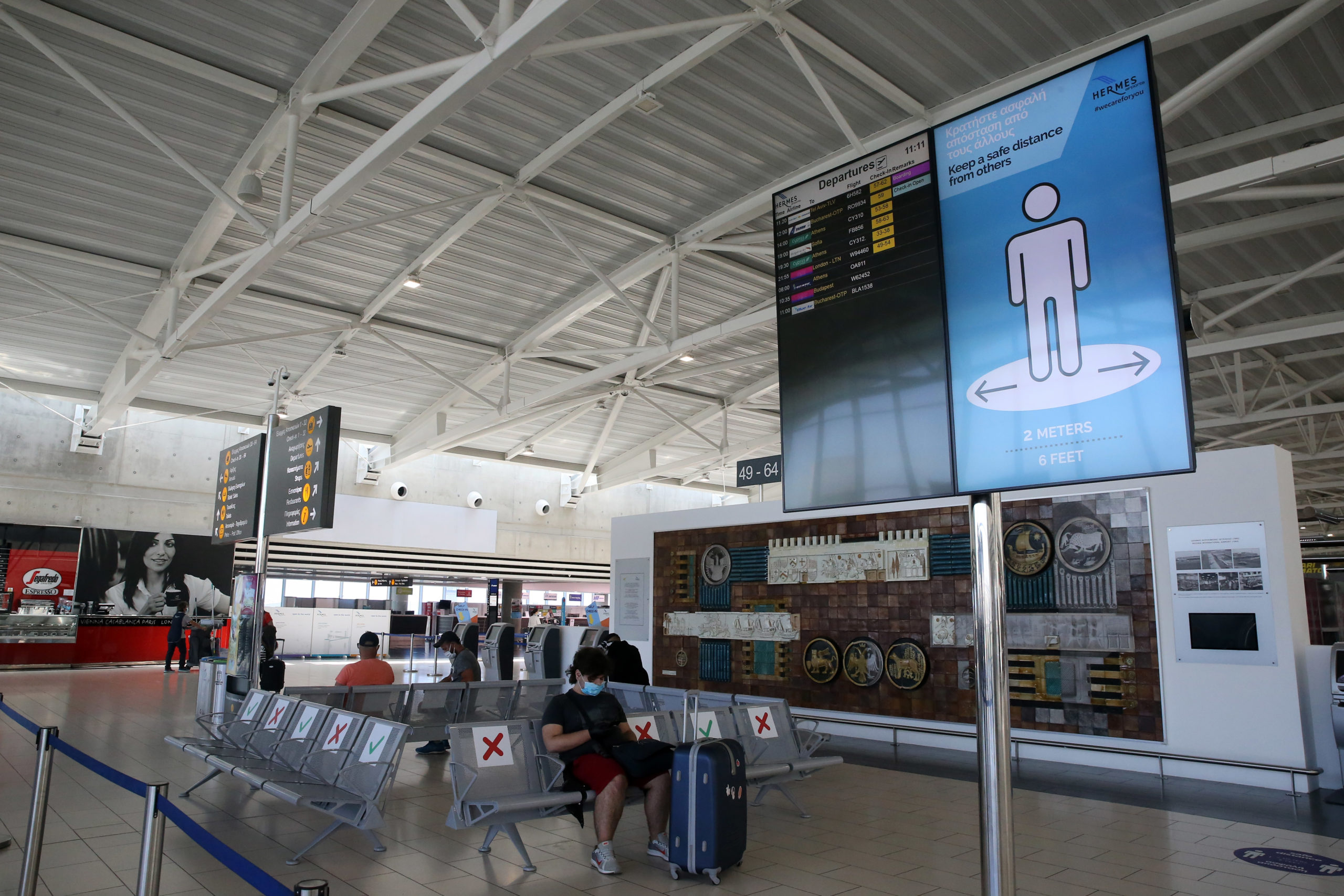As it eases lockdown measures Cyprus is keeping a tighter grip on airport arrivals in a bid to prevent a COVID third wave by increasing checks and shortening the list of countries deemed as safe for travel.
After safeguarding its health system against second COVID-19 wave peaking at 907 daily cases, authorities have revised its safe travel list, placing more countries in the high-risk category.
There are just three countries in categories A from where you don’t need to provide a negative COVID-19 test before arriving.
Eight countries are in category B from where you need to provide a negative test.
Visitors arriving at Larnaca and Paphos airports from category A and B countries have to self-isolate for three days and undertake a PCR test for coronavirus upon ending their quarantine.
Other destinations have longer quarantine rules.
With epidemiological data deteriorating across Europe and the rest of the world, Cyprus has knocked six countries entirely off the travel list while demoting Thailand from category A to B, and Rwanda from B to category C.
Announcing the new travel list, effective from Friday 19 February, the Health Ministry said that based on a recommendation of the European Union, Cyprus has removed six third countries entirely off the list.
As of Friday, Algeria, Morocco, Montenegro, Serbia, Uruguay, and Japan will not be included in any category.
Category A – Low-risk countries
Only Australia, New Zealand, Singapore, remain in category A.
Category A includes countries with an effective reproduction (Rt) number lower than 1 or/and a small number of new diagnoses (<1/100,000 inhabitants per day) or/and small or very small COVID-19 mortality (<5-10/100,000) or/and classification of sporadic cases or clusters of cases according to the WHO or/and at least satisfactory lab testing (>3000 tests/100,000).
Category B – medium risk
Countries with R (t) above 1 and/or new cases of >1/100,000 or increased COVID-19 mortality (>10/100,000) and/or limited lab tests (<2000 tests/100,000 people) or lack of classification by WHO.
This category now includes only eight, down from nine countries, of which just three are EU member: Greece, Germany, and Finland.
It also includes two members of the Schengen area, Iceland, and Norway; and three third countries: China (including Hong Kong and Macau), South Korea, and Thailand.
Arrivals from countries in Category B need proof they have tested negative for COVID-19 within 72 hours of boarding their flight to Cyprus, self-isolate for three days and repeat the PCR days before exiting their quarantine.
Cypriots, residents, or those who can prove that testing is not available in their country of origin have the option of paying for a test (€50) at the airport upon arrival.
All passengers, irrespective of category must apply online for CyprusFlightPass ((https://cyprusflightpass.gov.cy/) within 24 hours of departure.
Passenger arrivals are also randomly tested at the airports.
Category C – High-risk countries
Entry to Cyprus from category C countries is only allowed for Cypriots, residents, and people with a special permit.
People arriving from these countries need to carry a coronavirus negative test, undergo another test upon arrival and then self-isolate for 14 days.
Arrivals can take a PCR test on the tenth day, and provided that the result is negative, they can exit their quarantine. If they do not wish to take a PCR test, they will be released on the 14th day.
These countries are:
EU member states: 1) Austria, 2) Belgium, 3) Bulgaria, 4) France, 5) Ireland, 6) Croatia, 7) Luxembourg, 8) Romania, 9) Spain, 10) Italy, 11) Malta, 12) The Netherlands, 13) Hungary, 14) Poland, 15) Portugal, 16) Slovakia, 17) Slovenia, 18) Czech Republic, 19) Denmark 20) Estonia, 21) Latvia, 22) Lithuania, 23) Sweden.
- Small states: 1) Andorra, 2) Monaco, 3) Vatican City, 4) San Marino
- Members of the Schengen Area: 1) Switzerland, 2) Liechtenstein Third Countries: 1) Rwanda
All countries not included in categories A or B are placed in this category. Some of the countries which are of high risk according to their epidemiological picture are mentioned above.
United Kingdom
Discovery of a more potent strain of the virus identified in Britain, UK arrivals must undergo a laboratory test upon their arrival at Larnaca or Paphos Airports and they are transported to designated hotels – free of charge – for mandatory 7-day isolation.
After that they undergo another PCR test, and if negative remain in self-isolation for another 3 days.










